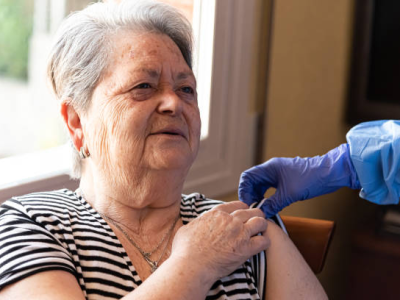Mar 30, 2011
Alabama says 19 infections linked to contaminated IV solution
Alabama health officials reported yesterday that 19 patients in six Birmingham area hospitals became infected with Serratia marcescens because of contaminated intravenous (IV) nutrition solutions from a single pharmacy. Nine of the patients died, but it was not clear whether the IV solutions contributed to their deaths, health officials told the news media. The infections involved patients receiving total parenteral nutrition (TPN), the Alabama Department of Public Health (ADPH) said in a press release yesterday. After learning of the outbreak in two hospitals on Mar 16, the ADPH asked for help from the Centers for Disease Control and prevention (CDC). The CDC investigation pointed to TPN produced by one pharmacy, Meds IV, as a potential common source, the state said. The affected hospitals are Baptist Princeton, Baptist Shelby, Baptist Prattville, Medical West, Cooper Green Mercy, and Select Specialty Hospital.
After Meds IV was notified of the problem, it informed its customers, stopped production, and on Mar 24 recalled all its compounded IV products, the ADPH said. Dr. Donald E. Williamson, Alabama's health officer, said it was not clear whether the nine patients died of their infections or from their preexisting illnesses, the New York Times reported today. He said the outbreak appeared to be over. Dr. Alex Kallen of the CDC said less than a third of patients who received TPN at the six hospitals during the time of the outbreak became sick, the Times reported.
Mar 29 ADPH press release
Mar 20 New York Times report
Experts say WHO needs fundamental reform
Writing in the Journal of the American Medical Association (JAMA), a pair of experts on health policy and law say the World Health Organization (WHO) needs fundamental reform in order to maintain its leadership in global health governance. Devi Sridar of Oxford University and Lawrence O. Gostin of Georgetown University say the WHO is often overshadowed by global health initiatives such as the GAVI Alliance, can be subject to political pressure, and has an uncertain relationship with industry and civil society. The authors recommend five proposals for strengthening the WHO's leadership: The agency should (1) give a "real voice" to nonstate stakeholders such as philanthropies and businesses; (2) improve transparency so that stakeholders can more easily monitor WHO achievements; (3) exercise more control over the regional WHO offices; (4) use its authority to take a more active regulatory role on key issues, such as counterfeit
medicines and food safety; and (5) take steps to ensure more predictable, sustainable financing. On the latter point, the writers note that most of the WHO's funding now comes from voluntary contributions rather than member state assessments. The voluntary contributions are often earmarked for specific diseases, sectors, or countries, which "skews global health priorities." For example, in 2008-09, 60% of the "extrabudgetary funding" was used to fight infectious diseases, while only 3.9% went for noncommunicable diseases.
HHS launches Web site to inform consumers about immunizations
The US Department of Health and Human Services (HHS) today announced the launch of Vaccines.gov, a Web site designed to help parents and other consumers learn about immunization. The site "brings together the best in federal resources on vaccine and immunizations to provide consumers with easy-to-understand health information specifically for their needs," HHS said in a news release. Combining content from multiple HHS agencies, the site offers "content about vaccine recommendations, the diseases that vaccines prevent, important information for getting vaccinated, and tips on travel health." It also points consumers to resources in their states to learn about vaccine requirements for entry into school or child care and local community information. Dr. Bruce Gellin, director of HHS's National Vaccine Program Office, said the site was developed with significant consumer input and is easy
to navigate.
Mar 30 HHS news release


















